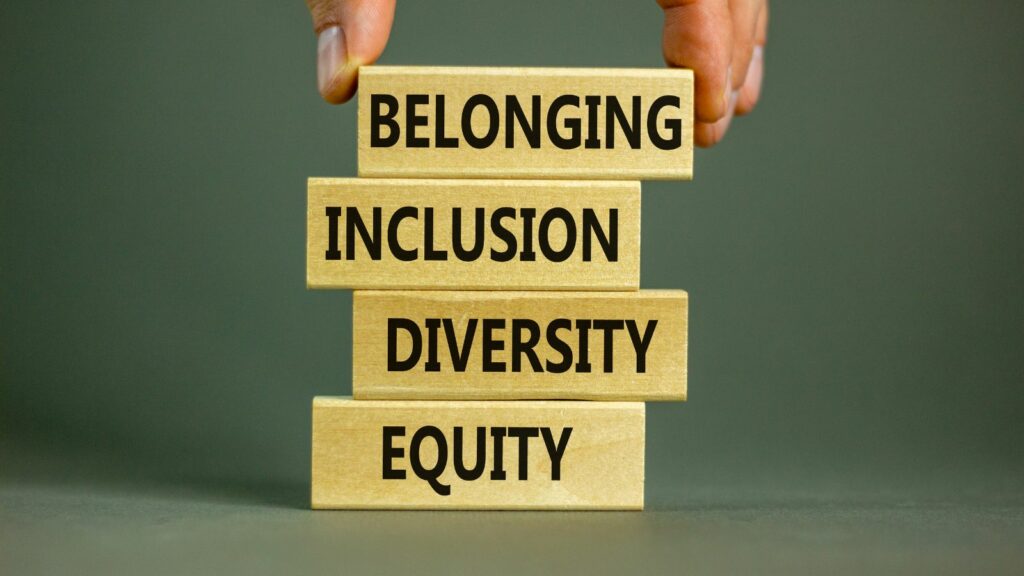
With two of February’s special days being Valentine’s Day and Pink Shirt (Anti-Bullying) Day, I think that talking about the power of creating a sense of belonging couldn’t be more relevant. Having a sense of belonging is a basic need for everyone; but that basic need is sometimes forgotten when interacting with people with disabilities.
People with disabilities are two to three times more likely to be bullied than their non-disabled peers 1, and bullying significantly erodes one’s sense of belonging. As a person with a disability myself, I luckily haven’t had too many experiences with bullying. Although; like many people in marginalized groups, I have a lot of experiences where I was not included and definitely did not feel like I belonged. One story that comes to mind is of a teacher I had. It was the beginning of the year and the first P.E. class and my teacher announced to the class that I would not be taking part in P.E. because I would slow everyone down. I was told to go back to class and do homework instead. Not only did this make me feel like I didn’t belong, it also sent a horrible message to the rest of the class about the inclusion and belonging of people with disabilities.
I think that a lot of people think that inclusion and belonging are the same thing, but I would argue that inclusion is creating an environment that provides equal treatment in a safe, respectful setting, while belonging is the feeling that a person gets when there is a shared sense of purpose and connection within an inclusive environment. Just because things are set up to be inclusive and accessible to people with disabilities, doesn’t mean that they also feel like they belong. I think that it is sometimes harder to create a sense of belonging in people with disabilities within society because there may not be shared experiences or an understanding of the challenges associated with having a disability. There are also other barriers to belonging that include myths about disability, low expectations for those who have a disability, and concerns about personal safety.
So how can we nurture a sense of belonging in everyone, including those who have a disability? Here are a few ideas:
- Find people’s strengths and utilize them – The people who are most impacted with a lack of a sense of belonging are the experts who have been excluded, so use their knowledge and connections and build on them.
- Create a purpose for everyone – Find practical ways of including everyone in some way. Even people who have multiple disabilities have something to offer if given the right supports and accommodations.
- Make a conscious effort to create positive connections and relationships – Spend time to learn about each other and to build community. Once this is in place, if negative issues arise, they are much easier to deal with if there is already a good relationship.
- Listen – Honour the experiences that people bring to the table and really listen to what they are saying about their needs. Make decisions transparent and collaborative so that everyone feels they have a voice.
- Celebrate people’s successes – Even small successes should be acknowledged. For some people with disabilities, their successes may seem like nothing to you, but they could mean everything to them. It is through celebration and acknowledgement that strong, long-lasting connections are made.
If you would like to learn more about creating a sense of belonging, I encourage you to reach out to Jessie Sutherland, founder of Intercultural Strategies.
Reference:
Let’s Talk About Bullying and Disability – https://www.pacer.org/bullying/info/students-with-disabilities/
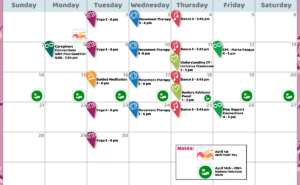 Programs Calendar
Programs Calendar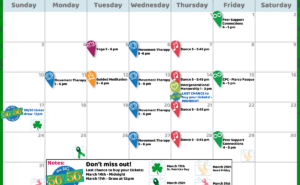 Programs Calendar
Programs Calendar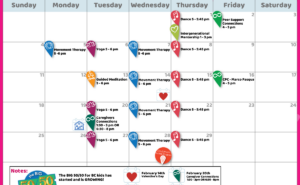 Programs Calendar
Programs Calendar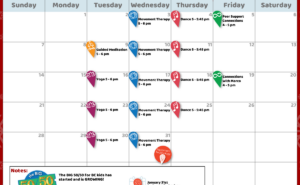 Programs Calendar
Programs Calendar

